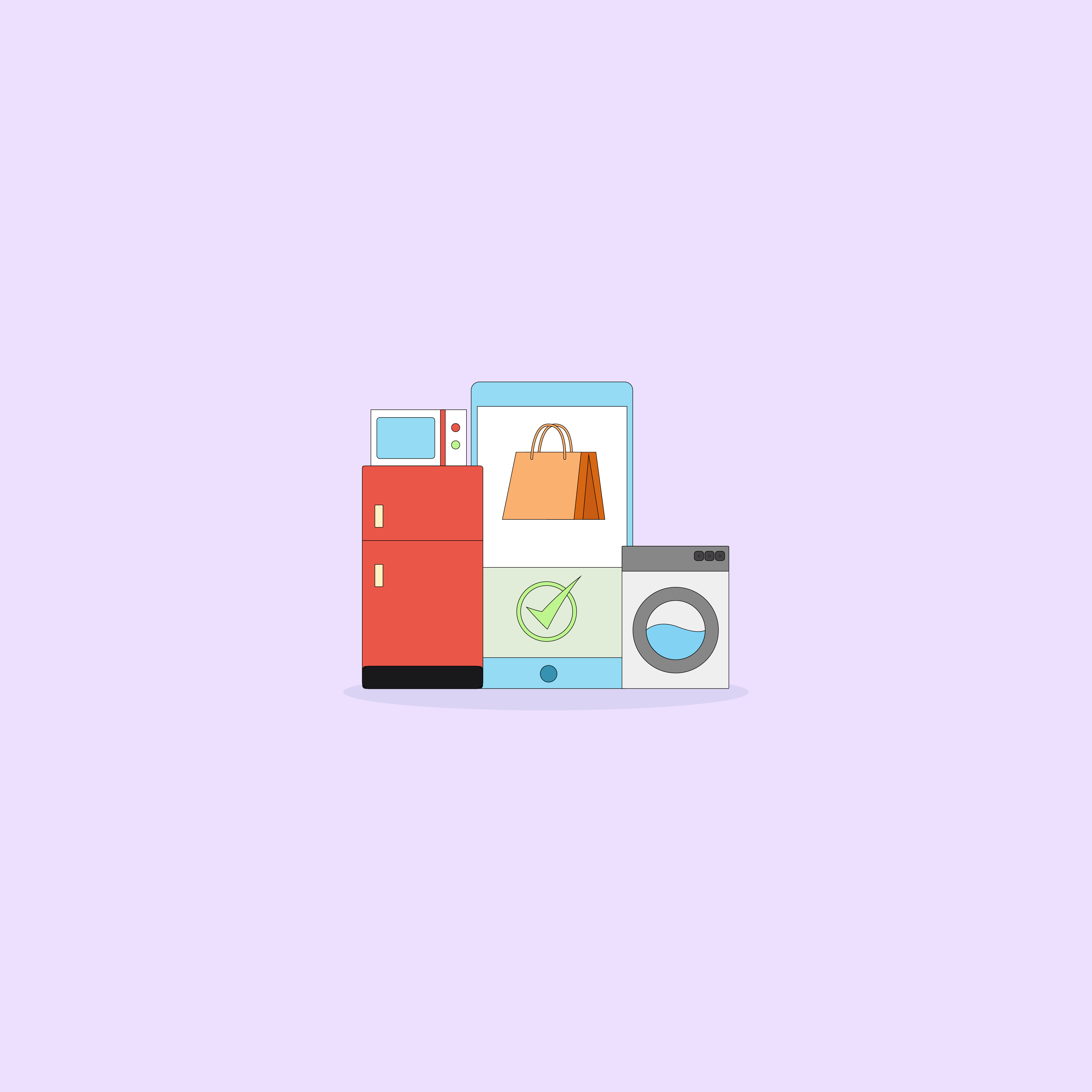We use cookies and similar technologies to enhance your experience. By clicking “Accept All,” you agree to the use of all cookies detailed in our Privacy Policy You can manage your preferences or withdraw your consent at any time
Social Commerce 101: A Guide
Social media has become a massive part of our daily lives. We spend time on social media to either have fun, relax, communicate, or… for shopping! The amount of people who use social media platforms for shopping is immensely high. So, how about turning this situation into a big profit for your brand? Let’s dive into the world of social commerce and find out how to do so!
What is Social Commerce?
Social Commerce is the practice of buying and selling products or services within a social media platform without necessarily directing the customer outside the said platform. Thanks to social commerce, shopping has become an inevitable part of our daily lives. When we want to take a look at our friends’ Instagram stories or scroll through TikTok videos, it is nearly impossible not to see an advertisement or a shoppable post that directly leads us to the purchasing phase.
As of 2022, 4.6 billion people are using social media platforms, which means social media has become the most important communication medium in terms of globalisation. And it holds an irreversibly significant place in our lives for providing connection between people around the world.
This connection is not limited to the interaction between users, though. Social media can be a wonderful vessel for a business to reach out to its target audience. Actually, most users already come to these platforms with the intention of shopping. Social media users are also potential customers looking for recommendations and ready to be inspired.
Social Commerce vs. eCommerce: What’s the Difference?
While eCommerce activities take place on eCommerce sites, online stores or branded apps, social commerce makes it possible to finalise a purchase within a social media platform without having to leave the said platform and open a new tab or application. Social media used to help generate more eCommerce conversion in the past, but now from brand awareness to purchasing, the whole process can happen within one platform.
So do not confuse these two! Having an online presence is crucial for building a loyal customer base and increasing your brand awareness; broadening your presence on social media will create wonderful outcomes for your brand. We will get to it in a bit. But before we do, let’s learn more about social commerce and why we need it in the first place.
What Does Social Media Mean for Businesses?
Social media is a place where those described as marginalised find a place for themselves and get the chance to reach out to their alike, finding or forming a community where they can deliver their message more comfortably and efficiently.
Providing a place for those who are generally less favoured in society, social media acts as a democratising force, bringing small businesses to the centre stage and helping them increase their visibility as well.
Minority-owned businesses like black-owned, women-owned, and LGBTQ+-owned businesses benefit and get support from social media and the space it offers. They mostly have an active voice in social issues. They can ignite a reaction or affect the course of the responses to social issues, all the while being recognised and known by many new people both for their participation in the issue and their brand.
Development and Evolution of Social Commerce
Although we started seeing the first signs of social commerce nearly 15 years ago, it really thrived in the last couple of years. As well as the improvements in AI, social factors contributed to its development to a great extent.
Facebook was the first to enable users to sell and buy via the site. It tried its Marketplace first in 2007 and introduced the buy button seven years later, which would pave the way for the new Marketplace in 2016 and Facebook Shops in 2020. Then followed Instagram, Tiktok, Pinterest, and Twitter with various features.
The COVID-19 pandemic has been with us for more than two years now, and it seems like it is here to stay. Although we get more and more used to living with it every day, it was a huge game changer, especially during the first year. Getting locked down and taking shelter in our safe zones led us to look for ways to connect with the outer world.
Besides how we socialise with family and friends, our shopping habits also changed. And eCommerce reached its peak in the meantime. Brands’ social presence also gained a more significant place on social media, and social commerce likewise thrived on that situation.
6 Essential Benefits of Social Commerce: Why is It Important?
Having a social media presence is essential for your brand for many reasons. Let’s go over them one by one:
1. Reach Out to Your Target Audience Easily
Through a social media analysis, you can specify and define what your target audience wants, which app they use, and what kind of products attract them the most. If you already know all these, you are ready to adopt an appropriate strategy and reach your audience on social media.
2. Grow Your Potential Customer Base
Social commerce does not only make you visible to your target audience but helps you reach out to larger audiences. Through the recommendation of your customers, you gain the interest of others who are not usually within your scope, which in turn triggers more users to see your content and products. Hence, the gradually growing audience and customer base.
3. Increase Your Visibility
Social media is a place where visibility can be both challenging and simple. However, surveys show that the global social network usage rate is 58.4% and the average daily time spent on social media is 2 hours and 27 minutes. Social media’s allowance for constant interaction between users and brands draws more customers the more your content reaches a reasonable number of users.
So, no need to get lost in the corners of social media as long as you keep your content relevant and up to date. If you already know what kind of language, content, and approach to employ, believe in the power of social media and get ready for vast possibilities!
4. Boost Your Brand Awareness
Being interactive as it is, social media allows customers to leave feedback for other users to see. This is great for both brand awareness and conversion rates because positive feedback encourages others to try a product and make a purchase from your brand. Social media’s convenience for quickly forming or joining a community makes it more effective and influential for users: They can receive recommendations from friends, family, and influencers, as well as get inspired by them, or vice versa.
5. Build A Two-Way Relationship with Your Target Audience
Besides user interaction, platforms like Facebook, Instagram and TikTok help build a direct relationship between customers and brands. They lay a bridge between customers and brands, eliminating the procedures followed with traditional commerce or eCommerce. Many brands use social media platforms for customer service now. Customers can give feedback, report their complaints, and leave a comment under your posts. That way, a close relationship between a customer and a brand is provided.
6. Fast and Convenient Shopping Experience
It offers a fast and convenient shopping experience since the customer does not have to get off-site at any point in the shopping process. They do the research, decide on the product, and check out within a single platform and a short time!
These are why many people use social media platforms to research a product they want and refer to these sites for shopping. Not only do they get inspiration and discover new products, but they can also find and buy what they want in a short period of time, in one place.
Growth Opportunity for Social Commerce: Personalisation
The common thread in these characteristics of social media is personalisation. The ability to directly address your target audience’s needs and desires; build meaningful relationships with them; answer their questions, feedback, and complaints; and most of all, benefit from AI algorithms to make your brand’s way to your current or potential audiences is the key point of it all.
People want to get their job done in the shortest time possible and do not want to get lost in an endless number of products. Creating a personalised shopping experience for your customers will help them not get lost in the process, use their time efficiently, and bring significant benefits.
The Most Popular Platforms for Social Commerce
Now let’s take a look at some of the most popular platforms for social commerce and in what aspects they can help you grow your business:
Facebook is still the most popular social platform, with nearly 2.93 billion monthly active users. If you already have a business page on Facebook, Facebook Shop could be what you are missing. You can customise your Facebook Shop as you wish and sell your products. You can also have direct communication with your customers through Messenger.
Similar to Facebook, you can set up a business account on Instagram and an Instagram Shop where you can share shoppable posts or stories with your followers, a.k.a. customers. Instagram shops are also customisable, and you can create your own product catalogue. You can add pricing, images, descriptions and any details you want. You can create Shopping Tags to tag your products in your posts and stories. That way, your product and its price can be detected with just one click.
Influencers are also essential for social commerce because, at times, they can promote a product and boost its sales in a way no other way can do in a very short time. They can also tag a product they use on their posts and boom! Your brand becomes visible to a bunch of new people.
Instagram’s discover section is also a great place to find new products for customers. Considering 44% of people use Instagram for shopping on a weekly basis, getting a spot for your brand on the Instagram discovery will create a massive profit for you.
TikTok
TikTok offers a wide variety of options for businesses. It is not less appealing than Facebook or Instagram when it comes to boosting brand awareness and sales. TikTok Shop has many ways to showcase and sell your products.
With your TikTok for Business account, you can link your Shopify store to your TikTok and add a shopping tab to your profile. You will also be able to sync your products on Shopify with TikTok and keep track of your campaigns with campaign creation tools.
Besides enabling you to sell your products, there are many ways to promote them beforehand via TikTok’s many features. There are currently five types of ads on TikTok, with three more to come. Product Showcase and short videos are also great for promoting a product. You can tag products on your videos, make use of AR filters and create your own branded effects, which will make you visible to a broader audience.
Another exciting feature of TikTok is Live Shopping. You can showcase, promote, and sell products on a live broadcast and users can add those items to their basket or buy them right away. Live broadcasts promise a considerable benefit for brands since 50% of users purchase something after watching a live broadcast.
TikTok is a platform you should not miss if you want to grow your business. You can learn more about TikTok and the many possibilities to make the best use of it; check out our article TikTok Marketing Strategy Tips, where we gathered the most useful marketing strategy tips for you.
People come to Pinterest mostly for inspiration. And this is true for their shopping habits too. They search for new ideas for their next purchase and decide what to buy on Pinterest. On Pinterest, you can both sell and advertise your products.
A business account on Pinterest will allow you to create a product catalogue. There are a couple of ways to create a catalogue, and connecting your Shopify to your business account is one of them. That way, your entire product catalogue gets automatically added to Pinterest. Your Product Pins will allow customers to easily see the details, pricing and description and directly buy your product.
When you join the Verified Merchant Program, you get a verified badge on your profile and get shoppers’ trust and attention more, as well as the chance to increase your visibility during a search.
With 433 million people visiting Pinterest every month, your products will find their way to many users who are eager to shop.
Wrapping Up
The increase in social commerce does not seem to lose acceleration in the coming years. Research has shown that it will be nothing like we have seen so far. So even if you have not entered the world of social commerce yet, it is still not too late to have a share of a future full of opportunities!








